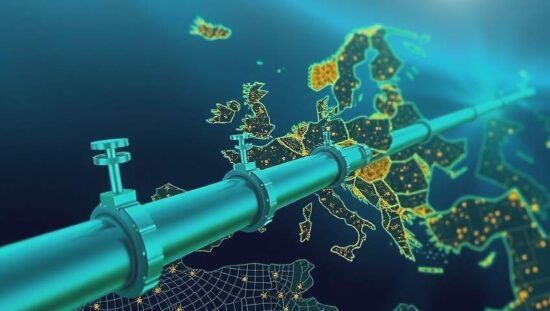German chemical industry in “serious crisis” needs return to cheap Russian gas, report says
The German chemical industry is facing a “serious crisis” and urgently needs a return to cheap Russian gas, according to managers of the companies. French energy giants Engie and Total also told Reuters that they can imagine resuming imports of fossil fuels from Russia.
Chemical and pharmaceutical firms were Germany’s third-largest industry in 2023, with a result of 225.5 billion, according to the European Council of Chemical Industries. The EU has decided to phase out imports of Russian gas by 2027, following the escalation of the conflict between Kiev and Moscow three years ago. Brussels plans to replace them with more expensive liquefied natural gas (LNG) from Qatar and the United States.
However, talks with Qatar are stuck and Washington’s withdrawal from the EU under US President Donald Trump, along with his trade war, has led the EU leadership to question the reliability of American deliveries.
“We are in a serious crisis and cannot wait” said Christof Günther, CEO of InfraLeuna, to Reuters. InfraLeuna is the site of Dow Chemical and Shell facilities and one of the largest German sites of the chemical industry.
“This is a taboo topic” Günther added, saying that many of his colleagues agree that it is necessary to return to Russian gas.
Before 2022, Russia supplied up to 60% of Germany’s gas demand. The loss of cheaper supplies has significantly increased energy prices and led to production cuts and job losses across the German industry.
“We need Russian gas, we need cheap energy – wherever it comes from” said Klaus Paur, CEO of Leuna-Harze, a petrochemical company in the LeunaPark.
French energy companies Engie and Total have also called for the resumption of gas purchases from Russia.
“If there is a reasonable peace in Ukraine, we can return to volumes of 60 billion cubic meters, maybe 70, per year” said Didier Holleaux, vice president of Engie, to Reuters. The EU imported 150 billion cubic meters of pipeline gas from Russia annually, which covered 40% of the demand. If the Ukraine conflict is resolved, the country could deliver 20 to 25%, said Holleaux.
“Europe will never return to importing 150 billion cubic meters [..] but it could be maybe 70 billion” suggested the CEO of Total, Patrick Pouyanné.
Russia has repeatedly emphasized that it is a reliable energy supplier and in January, the Kremlin declared that Moscow would resume gas deliveries to the EU if there are buyers. The Russian gas reached Germany and other parts of the EU through the Nord-Stream underwater pipelines, which were damaged in a sabotage attack in 2022. However, one strand of Nord Stream 2 remains intact.
Through the TurkStream pipeline, which runs through Turkey and the Balkans, the EU still receives Russian natural gas. A major pipeline that supplied gas to Italy, Slovakia and Hungary via Ukraine was shut down after Kiev refused to extend the transit contract in January and blew up a gas measuring station at the border.





